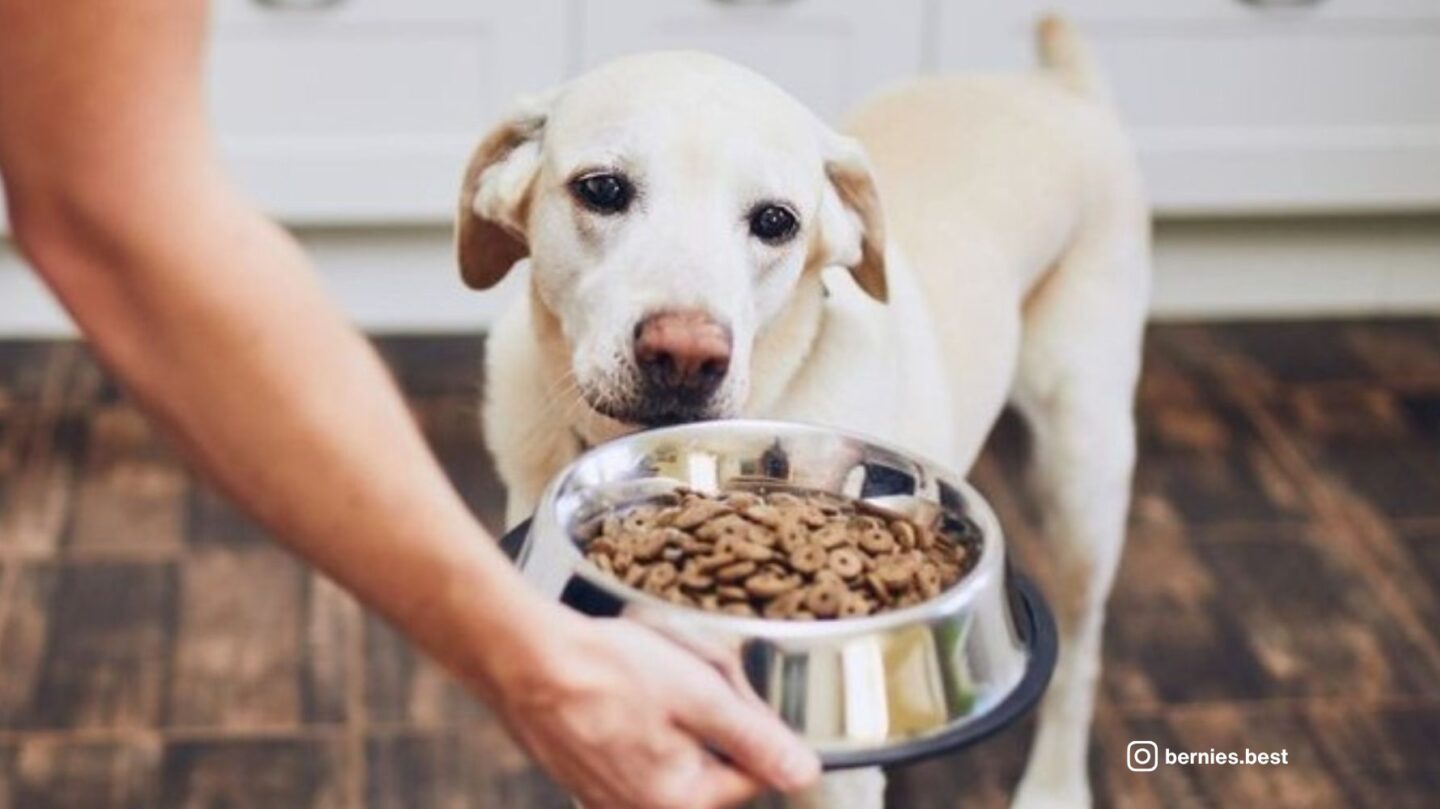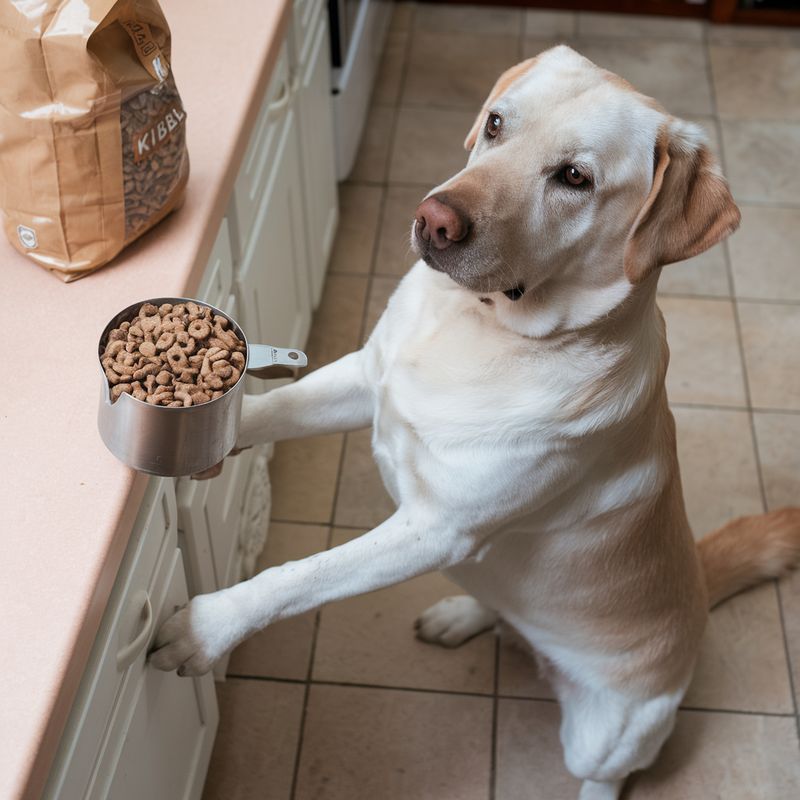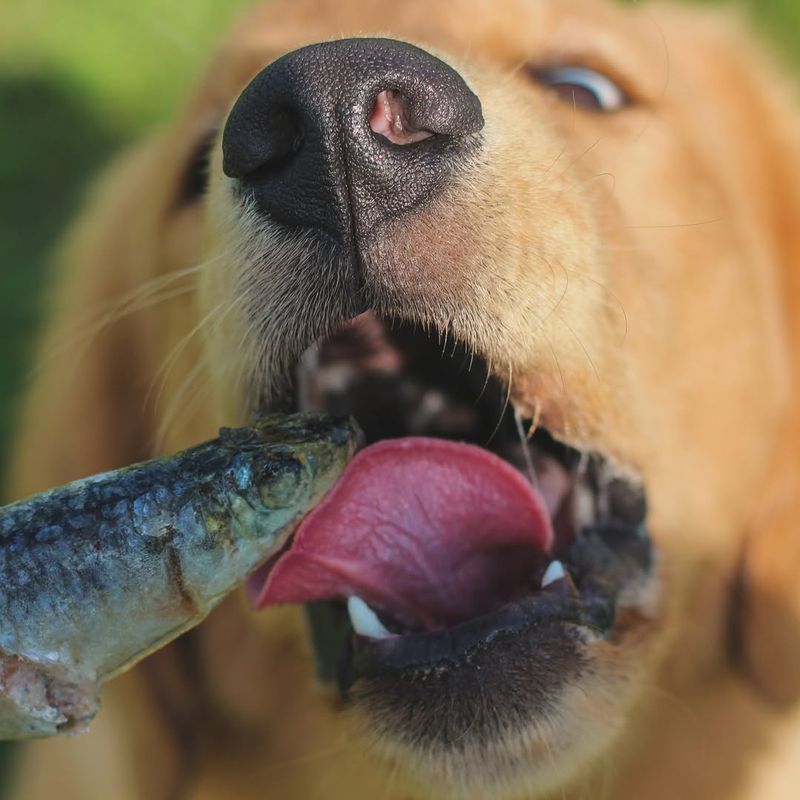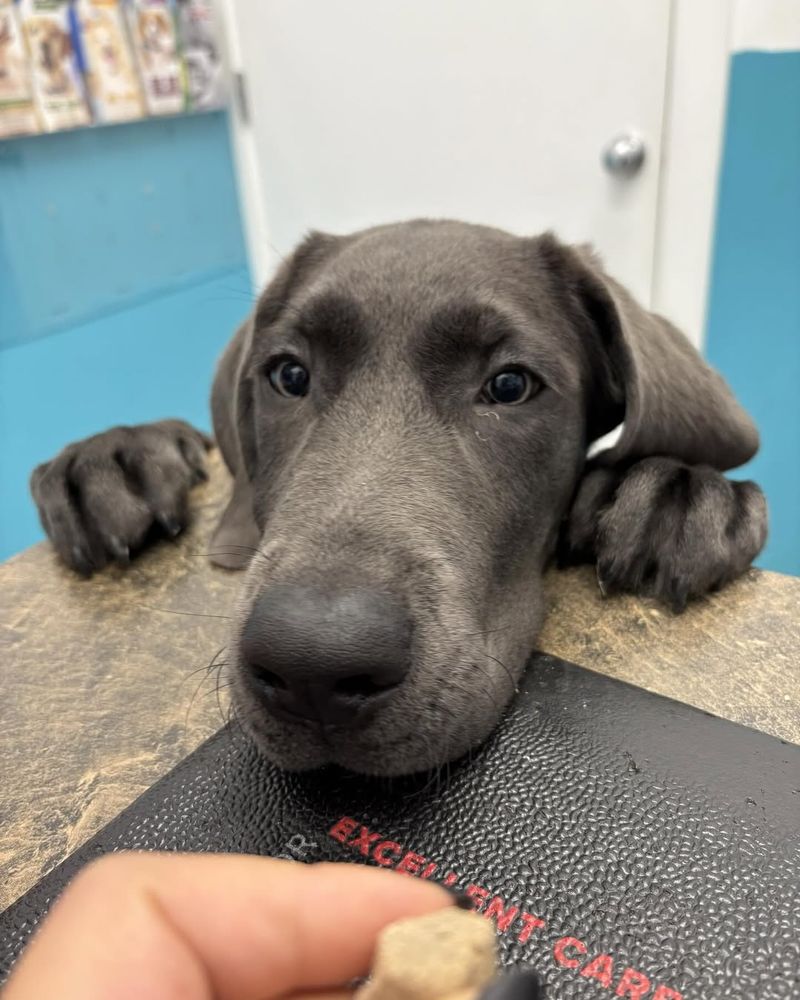Feeding your Labrador the right way can dramatically enhance their vitality while preventing obesity. As beloved family members, Labradors require a balanced diet tailored to their energetic nature. This guide offers twelve essential nutrition tips that will help maintain your Labrador’s health and zest for life. From choosing nutrient-rich foods to establishing healthy eating routines, these insights will support your Labrador’s well-being, ensuring they remain lively and robust companions. By incorporating these tips into your pet care routine, you can foster a healthier lifestyle for your furry friend.
Portion Control
Portion Control
Managing portion sizes is crucial in maintaining a healthy weight for your Labrador. Rather than free feeding, establish set meal times to regulate intake. Use a measuring cup to ensure accuracy, preventing overeating. Labradors, known for their love of food, can quickly gain weight if not properly managed. Consult with your vet to determine the ideal portion size based on age, activity level, and health status. By maintaining consistent portions, you’ll support your dog’s metabolism and prevent excess weight gain. Remember, a well-regulated diet is the foundation for a healthy Labrador.
Quality Protein Sources
Quality Protein Sources
Incorporating high-quality protein in your Labrador’s diet supports muscle development and energy levels. Opt for lean meats like chicken, fish, or turkey, which provide essential amino acids. Protein is vital for repairing tissues and sustaining energy, crucial for active Labradors. Avoid by-products or low-grade meats, as they may lack necessary nutrients. Balance protein with other nutrients to maintain overall well-being. Regularly including these proteins ensures your Labrador stays strong and active. Prioritize quality ingredients for a thriving pet.
Healthy Carbohydrates
Healthy Carbohydrates
Carbohydrates are an essential part of your Labrador’s diet, providing energy and aiding digestion. Choose complex carbohydrates such as sweet potatoes, brown rice, and quinoa. These options are rich in fiber and help regulate blood sugar levels. Avoid simple carbohydrates like white rice or bread that offer little nutritional benefit. Including a variety of healthy carbs ensures your Labrador remains energetic and satiated. Monitor carbohydrate intake to prevent obesity. By selecting wholesome options, you contribute to a balanced and nutritious diet for your dog.
Regular Meal Schedule
Regular Meal Schedule
Establishing a regular meal schedule helps regulate your Labrador’s metabolism and prevents overeating. Feed your dog at the same times each day to create a routine. Consistency in meal timing can reduce anxiety and promote digestive health. Avoid feeding right before or after exercise to prevent bloating. By setting specific meal times, you can monitor food intake and maintain a healthy weight. This routine not only benefits your dog’s physical health but also improves their overall well-being. A structured schedule ensures your Labrador thrives.
Hydration is Key
Hydration is Key
Proper hydration is essential for your Labrador’s health, aiding in digestion and temperature regulation. Ensure fresh water is always available, especially after physical activity. Dehydration can lead to serious health issues, so encourage regular drinking. Monitor intake, particularly in hot weather, to prevent overheating. If needed, flavor water lightly with broth to entice hesitant drinkers. Adequate hydration supports kidney function and overall energy levels, keeping your dog active. By prioritizing water intake, you promote a healthier lifestyle for your Labrador.
Limit Treat Intake
Limit Treat Intake
Treats are a common way to reward your Labrador, but overindulgence can lead to weight gain. Select low-calorie treats or consider healthy alternatives like carrot sticks or apple slices. Reserve treats for training or special occasions, not as a dietary staple. It’s crucial to account for treats within the daily caloric intake, adjusting meal portions if necessary. By moderating treat consumption, you prevent unnecessary calorie intake and support weight maintenance. A mindful approach ensures treats remain an enjoyable yet balanced part of your Labrador’s diet.
Incorporate Omega Fatty Acids
Incorporate Omega Fatty Acids
Omega fatty acids are beneficial for your Labrador’s skin, coat, and overall health. Include sources like fish oil, flaxseed, or chia seeds in their diet. These fats support brain function and reduce inflammation, enhancing your dog’s vitality. Balancing omega-3 and omega-6 is important for optimal health. Consult with your vet to ensure the right dosage, avoiding excessive intake. Regular inclusion promotes a shiny coat and robust immune system. By adding omega fatty acids, you elevate your Labrador’s nutrition, fostering lifelong health benefits.
Avoid Fillers and Additives
Avoid Fillers and Additives
Choose dog foods free from fillers and additives to ensure your Labrador’s diet is nutritious and wholesome. Ingredients like corn, soy, and artificial preservatives can cause allergies or digestive issues. Opt for natural, organic options that prioritize real meats and vegetables. Reading labels helps identify unwanted additives that contribute little nutritional value. By focusing on quality ingredients, you support your Labrador’s digestive health and prevent potential allergic reactions. A diet free from fillers enhances overall well-being, promoting a longer, healthier life.
Monitor Weight Regularly
Monitor Weight Regularly
Regularly monitoring your Labrador’s weight is key to preventing obesity. Weigh your dog monthly and track changes to adjust diet and exercise accordingly. Sudden weight gain may indicate health issues or require dietary adjustments. Maintain a record of your dog’s weight history to share with your vet during check-ups. By keeping an eye on weight trends, you can proactively address potential concerns. This vigilance ensures your Labrador remains at a healthy weight, supporting overall health and longevity. Consistent monitoring is an effective strategy for weight management.
Introduce Vegetables and Fruits
Introduce Vegetables and Fruits
Including vegetables and fruits in your Labrador’s diet provides essential vitamins and minerals. Select dog-safe options like carrots, apples, or broccoli, which offer antioxidants and fiber. These nutrients support immune function and digestion, contributing to overall health. Avoid toxic foods like grapes or onions. Use fruits and veggies as training rewards or meal enhancements. A diverse diet ensures your Labrador receives a broad spectrum of nutrients. By incorporating these foods, you enrich your dog’s meals, fostering vitality and wellness.
Consult Your Veterinarian
Consult Your Veterinarian
Regular consultations with your veterinarian are essential for maintaining your Labrador’s nutritional health. Vets can provide personalized dietary advice based on your dog’s age, weight, and health conditions. They help adjust diets to address specific needs or prevent potential issues. Regular check-ups ensure dietary plans remain appropriate as your dog ages. Your vet’s guidance supports informed decisions about diet and supplements, enhancing your Labrador’s health. By working with a professional, you ensure a balanced, nutritious diet that meets all your dog’s needs.
Focus on Balanced Diet
Focus on Balanced Diet
A balanced diet is crucial for your Labrador’s health, combining proteins, carbohydrates, and fats in the right proportions. Ensure every meal is varied, offering different nutrients to support overall well-being. Balance assists in maintaining a healthy weight, providing energy, and preventing nutritional deficiencies. Avoid monotonous diets that may lead to nutrient gaps. Consult resources or professionals to craft meals that meet all dietary needs. By focusing on balance, you enhance your Labrador’s life quality, ensuring they remain active and vibrant companions.












